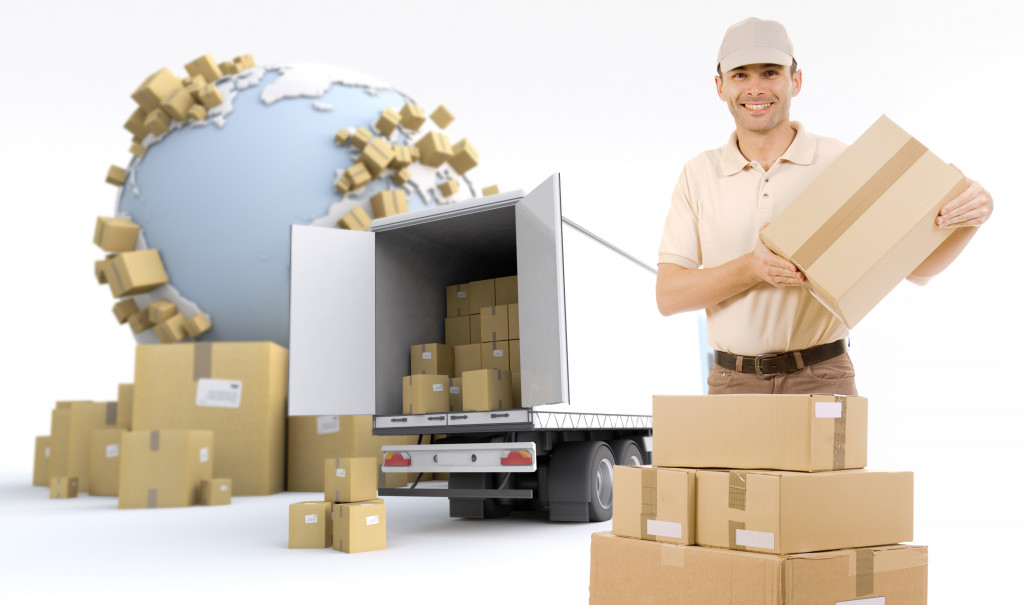The logistics industry has experienced significant changes over the past few years due to advances in technology. It has become increasingly important for businesses in the logistics sector to make use of new technologies as a way to stay ahead of their competition and increase efficiency. Here are some innovative ways you can use technology to help maintain your logistics company.
Automated Scheduling Software
Automated scheduling software can make it easier for your company to manage deliveries, track shipments, and monitor driver performance. This type of software can also help you save time and money by allowing you to quickly generate optimized delivery routes for drivers.
Additionally, automated scheduling software can be used to quickly calculate accurate ETAs for customers and provide them with real-time updates on their shipments. For example, the use of geofencing can be used to send notifications when a shipment is nearing its destination.
In addition, automated scheduling software can be used to assign specific tasks or jobs to drivers, as well as notify them of any changes in delivery schedules. This helps ensure that your drivers are always on the right track and reduces the risk of delays.
Tire Management System
Efficient truck tire management can help you keep track of the condition of your truck tires and ensure that they are kept properly maintained. This type of system allows you to quickly identify any issues with your tires, such as low tread depth or irregular wear patterns, which can then be addressed before they become a bigger problem.
Additionally, this type of system can be used to track the performance of each tire and compare it with other tires of similar age and usage. This data can then be used to make decisions about when new tires need to be ordered, as well as identify potential issues or trends in your fleet’s tire maintenance.
If possible, you should also look for a system that can be integrated with your fleet management software. This will allow you to easily monitor and manage all aspects of your truck tires in one place, saving you time and money.
Cloud Computing
Cloud computing is a great way to store data securely without having to invest in costly infrastructure or hardware upgrades. It also allows you to access data from anywhere at any time, which makes it ideal for companies that operate across multiple locations or countries.
Cloud computing can also help reduce costs associated with the maintenance and support of IT systems. For instance, businesses can use cloud-based services to easily back up and store data, as well as quickly scale up or down depending on their needs.
Finally, cloud computing can provide your business with enhanced security measures, such as two-factor authentication, which can help protect sensitive information from unauthorized access.

GPS Tracking
GPS tracking is an essential tool for any logistics business that needs to keep track of vehicles and shipments in real time. With GPS tracking, you will be able to quickly identify the location of your fleet vehicles as well as get instant updates on their status and performance metrics such as speed and fuel consumption.
This will enable you to better manage your fleet operations and ensure efficient delivery times for customers. For example, you can use GPS tracking to quickly identify any vehicles that are running late and take corrective action.
Additionally, GPS tracking can also be used to monitor driver behavior, such as hard braking or speeding, which helps you ensure that your drivers are following safety regulations.
Mobile Apps
Mobile apps are becoming increasingly popular among logistics companies due to their ability to streamline operations across multiple devices and platforms. These apps allow users to check shipment statuses from any location, manage inventories remotely, and receive notifications about orders.
Businesses can also use mobile platforms to track drivers’ locations in real time, receive customer feedback surveys, and create invoices quickly, making it easier than ever before for companies in the logistics industry to run their business efficiently and effectively from any place at any time.
Furthermore, mobile apps are also being used to automate many of the tedious tasks associated with running a logistics business, such as keeping track of driver hours and documenting customer service issues.
Robotics Process Automation (RPA)
RPA is an advanced form of automation that uses bots or algorithms programmed with specific rules and processes that can replicate human behavior within a system or application without requiring manual input from an operator or user interface (UI).
This type of automation helps organizations automate tedious tasks such as invoice processing or order fulfillment which would otherwise be done manually by employees, thus saving them time while increasing efficiency at the same time.
Moreover, RPA can be used to help businesses reduce costs associated with manual labor, as well as facilitate faster decision-making and better accuracy when it comes to data analysis.
Technology has revolutionized the way businesses operate today with its various innovative applications that have made operations more efficient than ever before. This includes the logistics industry too! By using these technologies mentioned above, your company could significantly improve its operational efficiency while reducing costs associated with manual labor at the same time. Doing so could help increase customer satisfaction levels while simultaneously helping your bottom line grow!

